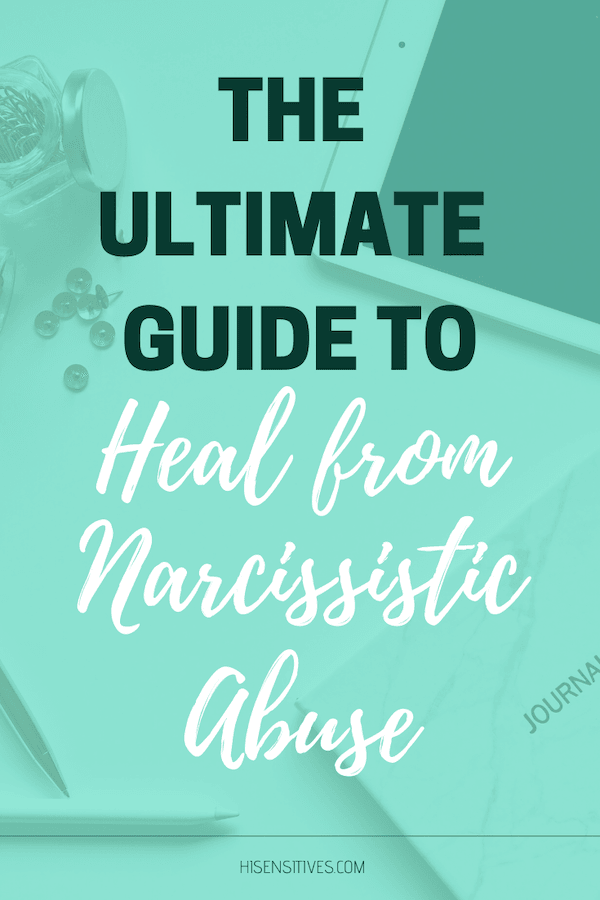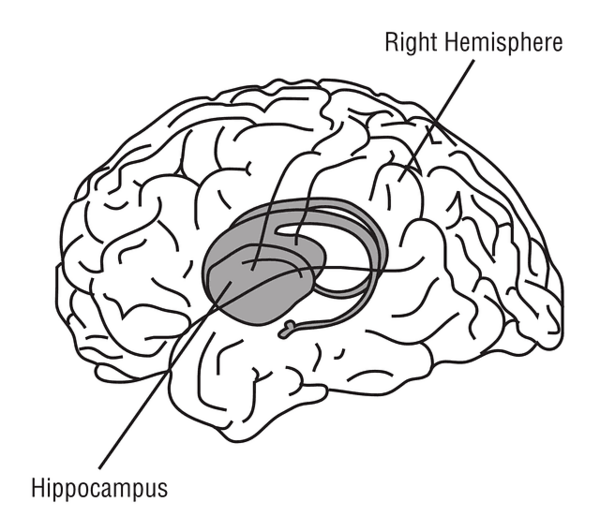Are you empathic and struggling to heal from narcissistic abuse? In this blog, we share tips on how to heal the wounds caused by a narcissist.
Hey there, lovely readers! We want to be completely transparent with you. Some of the links in this blog are affiliate links, which means if you click on them and make a purchase, we may earn a small commission at no additional cost to you. 😊
We only recommend products and services we genuinely believe in and have personally used or researched. Your support through these links helps us keep bringing you valuable content, so thank you for being amazing!
Estimated reading time: 13 minutes
Are you extremely empathic (and perhaps also highly sensitive)?
Have you dealt with a narcissist in your past and do you now struggle from the wounds caused by this person? Been there, done that.
It is a heart wrenching, physically and mentally painful experience that can turn your whole life upside down.
Because I myself had to spend time to heal from narcissistic abuse, I went into research mode to discover the core of the pain.
What I found is that the impact of narcissism on your physical and mental well-being is enormous. Hence, it is crucial to take the aftermath of narcissistic abuse seriously.
In this blog, I explain what a narcissist is. Also, I talk about the attraction between empaths and narcissists and the wounds that result from this type of abuse. Finally, I provide tips on how to heal from narcissistic abuse.

Here’s what you’ll learn

What Is A Narcissist?
According to Mayoclinic, a narcissistic personality disorder is a condition where the narcissist has a blown up sense of his or her own importance and feels the deep urge for extreme attention and admiration from others.
Also, a narcissist experiences troublesome relationships and has an extreme lack of empathy for other people.
Hiding behind this mask lies a self-esteem that is incredibly vulnerable to the tiniest amount of criticism.
What Causes Narcissism?
It is unknown what exactly causes narcissism in a person.
Similarly to other personality disorders, the narcissistic personality disorder may be a result of a poor parent-child relationship where the child either received too much praise or too much criticism.
Also, genetics might cause the narcissist to inherit certain characteristics from their parents.
Finally, neurobiology might play a role within narcissism, when there is a certain connection between the brain and behavior and thought patterns.
Narcissists experience many problems in various areas of their life, both within their work, school life, financial situation and relationships.
The constant need for approval, special favors from others and admiration results in a general state of unhappiness, as relationships with others don’t fulfill that need and others may not enjoy their company.
Traits Of A Narcissist
Only a therapist can truly diagnose narcissism, but some common traits for narcissists are:
- Feeling superior and entitled.
- A constant urge for approval and attention.
- Perfectionists.
- Little to no responsibility.
- Controlling.
- A lack of empathy.
- Take credits for the good deeds and blame bad situations on others.
- Experience a strong fear for being made fun of or not respected.
- Cannot show vulnerability to those around them.
- Bad team players, as it should be all about them.
Do Highly Sensitive People And Empaths Attract Narcissists?
It is a common idea in our society that (highly sensitive) empaths seem to attract narcissists like sugar attracts bees. While there are no studies that fully support this claim, it is logical that this idea has arisen.
Empaths are naturally deeply caring and incredibly compassionate. Their life purpose often includes helping and healing others.
Due to this developed sensitivity, they find it challenging to set healthy boundaries for themselves. Additionally, they easily give in to martyrdom, victimhood, co-dependency and continuous self-sacrifice.

Narcissists, on the other hand, have deep traumas and wounds which result in the hurtful traits that they possess.
They put on a mask and hide behind their ideal self, which comes across as incredibly attractive. However, their real self is very uncaring, self-focused and mean.
Looking at these two opposites, one can see why they attract each other. The narcissist, who needs healing, attracts the empath, who wants to heal.
Poor Boundaries
The narcissist and the empath challenge each other’s darkest sites and in best case, grow from that experience. In best case, the narcissist realizes that his or her thought pattern is not common and seeks professional help.
The empath is confronted with the fact that he or she has poor boundaries and has to work on that. And this is exactly where the answer lies to the question if (highly sensitive) empaths attract narcissists.
Empaths do not necessarily attract narcissists. However, empaths with poor boundaries do.
The narcissist senses when someone has poor boundaries. They know that someone with a lack of boundaries will give in to their unrealistic expectations and needs.
Therefore, it is incredibly important to realize that the reason for you attracting a narcissist into your life isn’t your empathy, but most likely your lack of boundaries.
If you are highly sensitive and you want to learn how to deal with a narcissist, you may want to read ‘The Highly Sensitive Person’s Guide to Dealing with Toxic People: How to Reclaim Your Power from Narcissists and Other Manipulators’.

What Are The Wounds Of Narcissistic Abuse?
Now that you know why you may have attracted a narcissist into your life, it is important to examine the wounds caused by narcissistic abuse. Only by knowing what the wounds are, you can start to heal from narcissistic abuse.
Victims of narcissists can feel incredibly powerless, defeated and empty after interacting with a narcissist.
Studies have shown that narcissistic abuse is experienced as traumatic stress by the victim. In the worst case this can result in post-traumatic stress disorder (PTSD).
Furthermore, research indicates that this long-term traumatic stress can have a significant effect on three important aspects of the brain: the amygdala, the prefrontal cortex and the hippocampus.
Effects On The Amygdala
Firstly, the amygdala is the centre of the brain responsible for fear. During traumatic stress the size of the amygdala actually increases.
This part of the brain is responsible for storing all recollections of the narcissistic abuse and is triggered once someone talks about it. Accordingly, increased anxiety and mood disorders are the result.

Within highly sensitive people, this part of the brain already shows increased activity. Consequently, you can imagine what happens when a highly sensitive empath experiences narcissistic abuse!
Consequences For The Prefrontal Cortex
Secondly, the prefrontal cortex is responsible for controlling attention, planning, memory and decision-making. This region of the brain decreases when experiencing long-term traumatic stress.
As a result, when you suffer from narcissistic abuse, you might struggle with making decisions and only be able to pay attention for a short amount of time. Additionally, you might feel more depressed and find self-care challenging.
Effects On The Hippocampus
Finally, the hippocampus is the aspect of your brain that stores your short-term memories before converting them to long-term remembrances. Accordingly, this region determines how and when you can learn new things.
During long-term stress the hippocampus decreases. This results in forgetting things easier and finding it more challenging to learn something new.
As a result, narcissistic abuse has a significant negative effect on the long-term health of the victim.
The victim lives in a continuous state of anxiety and may suffer from anxiety and panic attacks. As a result, they keep reliving the trauma long after leaving the destructive relationship.
Other Negative Results Of Narcissistic Abuse
Besides the physical effects on your body, narcissistic abuse has significant effects on your self-image, self-beliefs and overall thought patterns.
Gaslighting from the narcissist may result in you losing a sense of what is real and what is not. Consequently, you might feel like you are going crazy, which is exactly what the narcissist wanted all along.
These thought patterns might be deeply implemented within you by the time you leave the destructive relationship. You may not even be aware of them.
While this might sound scary and incredibly demotivating, know that there are ways to heal from narcissistic abuse. Below, I am sharing some proven methods with you to heal your wounds from narcissistic abuse.
Effective Methods To Heal From Narcissistic Abuse
Now that you know where the pain stems from and what areas of your body need attention, it is time to heal from the narcissistic abuse you have experienced. This is a process that doesn’t happen overnight, so don’t be too harsh on yourself.
Here are some methods that help you to rebuild your strength:
EMDR
The first method that you might want to consider after breaking out of the narcissistic relationship is EMDR.
EMDR stands for Eye Movement Desensitization and Reprocessing and is a psychotherapy. This therapy supports you in healing from the symptoms and emotional distress that result from the narcissists’ abuse.
It is incredibly effective in healing deep emotional wounds within you and reducing the heavy emotions regarding the traumatic experience.
During EMDR the blocks regarding that experience are removed, so that you can resume healing.
For example, one study suggests that 84-90% of single-trauma victims eliminated post-traumatic stress order after only three sessions of 90 minutes! Similarly, there are other studies that show positive results with regards to the effects of EMDR.
How Does EMDR Work?
An EMDR treatment usually consists of eight phases. First the therapist identifies the memory that needs to be targeted.
Then, he or she asks the patient to think about certain aspects of that memory, while he or she moves his hand back and forth across the field of vision of the patient.
As a result of this method, the patient starts to process the memories and disturbing feelings that arise from remembering.
Accordingly, he or she experiences a mindshift with regards to the traumatic event. Instead of feeling upset and ashamed, the client starts to look at themselves as for example strong and a survivor.
Because the process happens internally within the client, it is an incredibly powerful way to heal past wounds quickly. Accordingly, this method can help you to heal from narcissistic abuse effectively.
In fact, studies indicate that PTSD victims are able to regrow up to 6% of their hippocampus within just a few therapy sessions. Additionally, it calms the amygdala, which helps the patient to react less emotional to specific situations.
This shows the powerful effects of EMDR. If you are experiencing serious symptoms as a result of narcissistic abuse, you might want to consider seeing a therapist to discuss the opportunities with regards to EMDR.
Emotional Freedom Technique
Another powerful method you might want to consider trying, is the emotional freedom technique (EFT).
EFT is the art of using psychological acupressure techniques to improve your emotional health. It can help you to remove negative emotions, decrease or remove pain and to implement positive goals.
This technique is thousands of years old and involves putting pressure on specific meridians on your head and chest with your finger tips, while thinking about the specific problem.
By doing this, your body releases emotional blocks regarding the traumatic event and restores the balance of your body and mind.
Therefore, this technique can be incredibly useful in order to heal from narcissistic abuse. By thinking about the traumatic events in relation to the abuse while tapping on the right pressure points, you can reduce the emotional pain of the experience and shift your mindset.
This is a technique that requires some practice, but with the right resources you can learn to do it on yourself.
On this website specifically for EFT, you find extensive information about this self-healing method.
Identifying Thought Patterns
When something traumatic happens to you, it is natural that specific thought patterns arise from that experience.
One of my thought patterns after experiencing narcissistic abuse was that the person that abused me, did it because I am not good enough. That I was the one to blame for what happened to me and that I should have done better in order to be treated better.
This is an incredible negative thought pattern that is the result of gaslighting, which is a common manipulation technique used by narcissists.
I did not realize that I had to break through these thought patterns until my therapist challenged me to do so.
How To Identify Your Thought Patterns
You can see your thought patterns as a tape that is playing on repeat. You repeat your thoughts to yourself over and over again and as a result, you will feel more upset and negative about what happened to you.
By identifying your thought patterns and being more aware of them when they occur, you can reclaim your power and increase your self-confidence. You literally push the pause-button and ‘put in another tape’, a more positive thought.
I know, i know – easier said than done. I thought the same when I started challenging my old beliefs about myself.
However, my therapist provided me with a wonderful technique to challenge these thought patterns. It is an exercise, where you visualize all your thoughts on a big white paper and place them in order in a bus.
It is super easy and has helped me tremendously in increasing my awareness and reclaiming my power. If you’d like to know how this method works, I have explained it in detail in this blog.
The bus-method helped me to heal from narcissistic abuse and I am sure that it will work very well for you as well.
Hypnotherapy
Another technique that you can try together with a professional to heal from narcissistic abuse, is hypnotherapy.
Hypnotherapy is a type of psychotherapy, where relaxation, in-depth concentration and focus are used to increase your state of mindfulness.
It can help you to reprogram your mind and behaviour, by removing negative thought patterns and emotions regarding a specific event.
The therapist replaces your negative thoughts with positive suggestions while you are in a relaxed state. Once you wake up, you will feel more confident and full of self-esteem.
Also, you will feel an increased ability to heal from narcissistic abuse and see things from a new perspective.
Hypnotherapy is incredibly powerful to help you understand better what you have been through, Therefore, it is definitely worth giving it a try when healing from narcissism.
There are certain self-hypnosis videos out there as well, which can help you to heal from your trauma. For example, you might want to try this self-hypnosis for healing self-esteem and stopping negative thoughts after narcissistic abuse:
Calm Your Anxiety
As you can see, all of the above mentioned methods somehow relate to calming anxiety and reducing anxious thoughts.
Therefore, the key takeaway is that it is incredibly important to calm your anxiety when you heal from narcissistic abuse. There are many different methods to try from home to calm your anxiety.
For example, you could try guided meditations or read self-help books on anxiety. Also, gratitude has shown to have calming effects on anxiety.
Another method to calm your anxiety is to use essential oils. Lavender oil, for example, appears to have anxiety-calming characteristics.
Finally, mindfulness and bringing your mind back to the here and now is a powerful method to calm your anxiety regarding traumatic events.

Conclusion
Narcissistic abuse is one of the toughest things you will ever go through in life. It is important to heal from narcissistic abuse in order to live a happy and fulfilled life.
The key towards healing is self-love. Spend time on applying some of the above mentioned methods and don’t expect results overnight. Give yourself the time and patience you deserve.
In addition, setting healthy boundaries prevents you from going through the same experience in the future.
Take care of yourself, love yourself and heal! I wish you all the best on your healing journey. If you are highly sensitive and you want to learn more about how to deal with a narcissist, you may want to read ‘The Highly Sensitive Person’s Guide to Dealing with Toxic People: How to Reclaim Your Power from Narcissists and Other Manipulators’.
Please share your thoughts: Have you encountered a narcissist in the past and how has it affected you?








